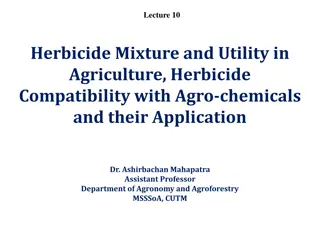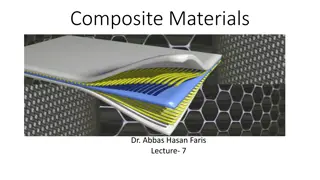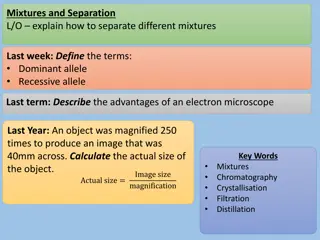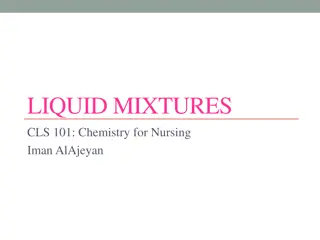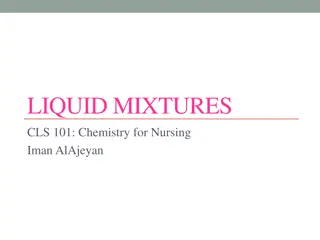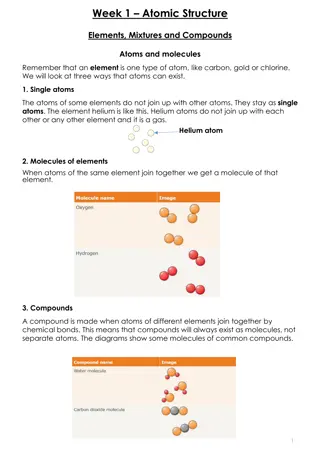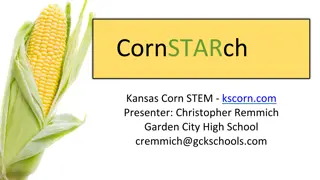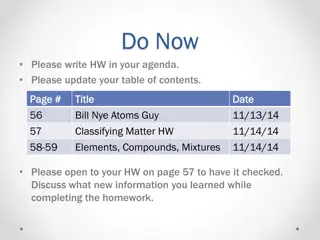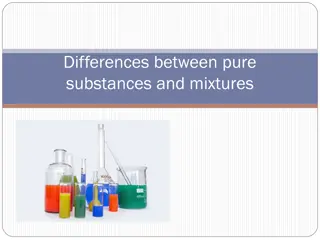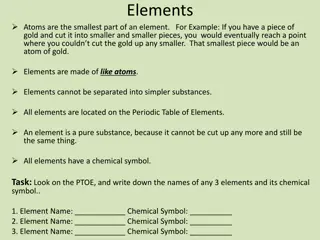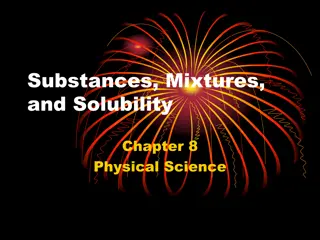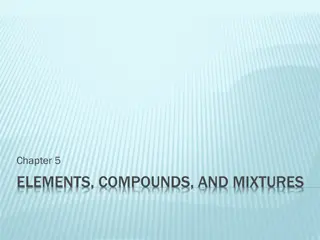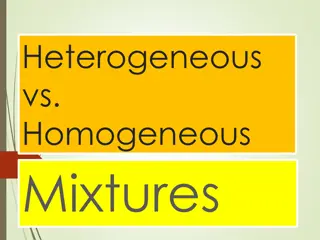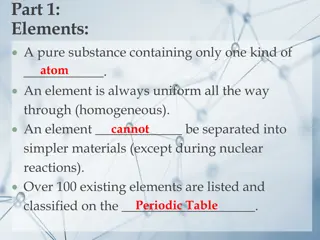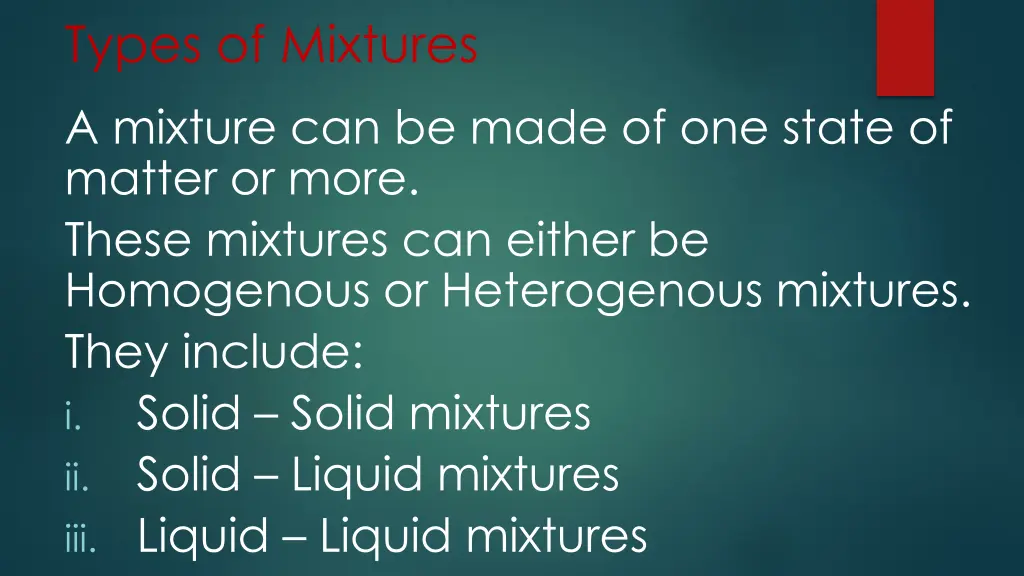
Understanding Different Types of Mixtures
Learn about the various types of mixtures including solid-solid, solid-liquid, and liquid-liquid mixtures. Explore examples and distinctions between homogeneous and heterogeneous mixtures in this informative guide.
Download Presentation

Please find below an Image/Link to download the presentation.
The content on the website is provided AS IS for your information and personal use only. It may not be sold, licensed, or shared on other websites without obtaining consent from the author. If you encounter any issues during the download, it is possible that the publisher has removed the file from their server.
You are allowed to download the files provided on this website for personal or commercial use, subject to the condition that they are used lawfully. All files are the property of their respective owners.
The content on the website is provided AS IS for your information and personal use only. It may not be sold, licensed, or shared on other websites without obtaining consent from the author.
E N D
Presentation Transcript
Types of Mixtures A mixture can be made of one state of matter or more. These mixtures can either be Homogenous or Heterogenous mixtures. They include: i. Solid Solid mixtures ii. Solid Liquid mixtures iii. Liquid Liquid mixtures
Solid Solid Mixtures. Solid Solid mixtures contain two or more solids. Example; Flour + Sand. Maize + Beans. These mixtures form Heterogenous mixtures.
Solid Liquid Mixtures Solid Liquid mixtures are formed by combining a solid and a liquid. Some solid liquid mixtures form homogeneous solutions while others mix to form heterogeneous mixtures. The process of mixing a solid and liquid to form a homogeneous mixture is called dissolving.
A solid that dissolves in a liquid is called a solute. A liquid that dissolves a solute is called a solvent. A solute and a solvent make a solution. salt + water (Solute) (Solvent) Solids that can dissolve in a liquid are said to be soluble. Salt solution (Solution)
Solids that cannot dissolve in liquids are said to be insoluble or non soluble. Solid Liquid Mixtures. Salt + water Homogeneous Sand + water Heterogeneous Flour + water Heterogeneous Sugar + water Homogeneous Glucose + water Homogeneous
Liquid Liquid Mixtures Liquid Liquid mixtures are formed by combining two or more liquids. Liquids that mix with other liquids are called Miscible liquids, they form a Homogeneous mixtures. Example; Milk + Water. Liquids that do not mix are called Immiscible liquids, they form Heterogeneous mixtures.
Example; Kerosene + water. Liquid Liquid Mixtures. Cooking oil + Water Kerosene + Water Kerosene + Cooking Oil Milk + Cooking Oil Water + Petrol Petrol + Kerosene Methylated spirit + Water Immiscible Immiscible Miscible Immiscible Immiscible Miscible Miscible
Gas Gas Mixtures Gas gas Mixtures contain two or more gases. Example; Nitrogen + Oxygen. These mixtures form Homogeneous mixtures since they mix uniformly.


